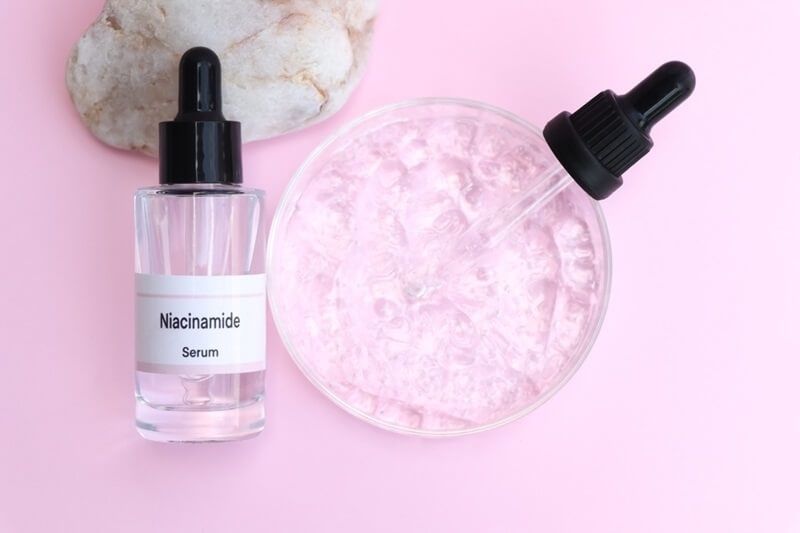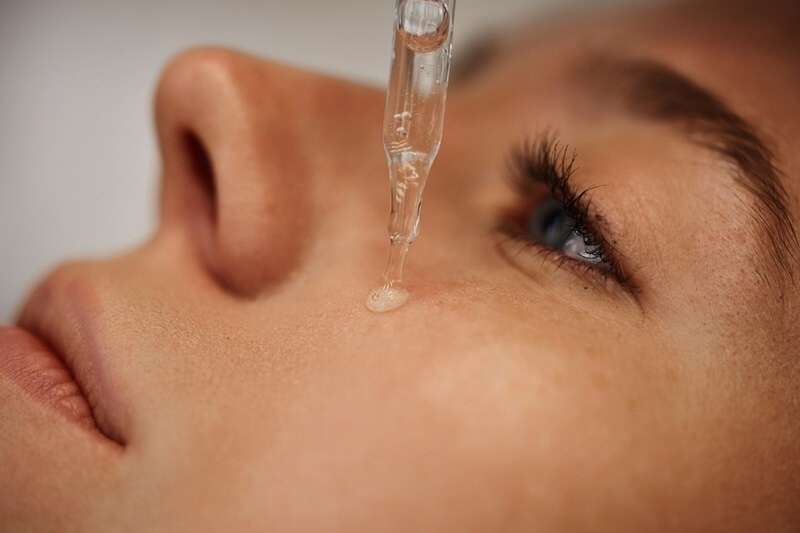
The use of niacinamide for acne scars is currently one of the most common ingredients in dermatology today. The ability of niacinamide to help reduce redness, brighten dark marks, and reorganize compromised skin has helped make it a gold-standard ingredient for treating acne scars. Treated with niacinamide over a few weeks of consistent use, it can visibly help even skin tone, reduce hyperpigmentation, and smooth uneven texture, all without the irritation of aggressive treatments like retinoids or acids.
Unfortunate for the acne sufferer, acne typically leaves behind marks, patches of uneven pigmentation, and other potential post-acne consequences — all even after the acne has resolved. Dermatologists often recommend niacinamide skincare because it helps balance oil production, minimize redness, and support the skin's barrier, while also gradually softening old scars. With other brightening ingredients added, niacinamide can transform your skincare routine.
Niacinamide (also known as vitamin B3) is a water-soluble vitamin that contributes to various skin functions. Its strength lies in its ability to support the skin barrier, improve moisture retention, and inhibit the transfer of melanin, helping to fade dark spots. For those suffering from acne, Niacinamide can also help regulate sebum activity, thereby reducing breakouts and allowing existing scars to heal more quickly.
From a dermatological standpoint, Niacinamide helps enhance skin texture through increased collagen development and cellular turnover. This eventually smooths out pitted acne scars over time while creating an overall even and healthier appearance to the skin.
Key advantages of niacinamide for acne scarring on the skin:

Dark spots, also known as post-acne marks, are two skin conditions that frequently appear after experiencing acne.
They usually appear due to inflammation that leads to excessive production of melanin. Niacinamide skin care is especially ideal for minimizing dark spots due to its ability to prevent melanosome transfer (the mechanism behind pigmentation). Gradually, this leads to an even, brighter skin tone.
In clinical trials, niacinamide has been found to brighten hyperpigmented spots within 4–8 weeks of continuous use. Dermatologists recommend using 5–10% concentrations for optimal results, as higher strengths may not be more effective but can cause further irritation in sensitive skin.
Expert Tip: Pairing niacinamide with licorice extract, alpha arbutin, or tranexamic acid can help with dark spot fading while avoiding irritation associated with bleaching agents.
It’s simple to add niacinamide for acne scars to your routine, but using quality niacinamide is essential. Below are some dermatologist-recommended niacinamide skincare products here in the U.S. market that can well address post-acne marks and enhance skin texture:
Formulated with niacinamide and thiamidol to have a dual effect on dark spots and skin tone enhancement.
In addition to lightening post-acne scars, niacinamide helps improve skin texture. It strengthens skin structure through ceramide synthesis, which makes the surface smooth and resilient. When used consistently, it can have fewer rough areas and an amazing glow.
If you have pitted or uneven acne scarring, niacinamide will never replace office treatment (like microneedling or chemical peels), however, it is a great adjunctive treatment. It is helpful in prepping the skin for more intense treatments, but it is also helpful in recovery after a treatment.
Niacinamide not only provides the skin with additional hydration and collagen, but it also improves the texture and resilience of the skin with continued use, combined with peptides and hyaluronic acid.
If you want to maximise the benefits of niacinamide, layering and consistency will be critical.
Here's how dermatologists recommend incorporating niacinamide skincare into your routine:
Begin with a pH-balanced, gentle cleanser that will extract dirt and oil without drying out your skin.
Apply a soothing, hydrating toner containing ingredients such as chamomile or green tea.
Use a concentrated niacinamide serum when the skin is mildly moist. Opt for concentrations of 5–10% for maximum benefit.
Follow up with a ceramide or hyaluronic acid-containing moisturizer to seal in the moisture.
Apply a broad-spectrum SPF 30+ each day to prevent dark spots from developing.
Using niacinamide both morning and night will help speed up acne scar repair, assuming your routine is ok (well-balanced and not irritating).
Niacinamide is generally well-tolerated and suitable for all physiologies. But the following mistakes should be avoided:
While they can brighten the skin equally well, mixing can be irritating, so I recommend using Vitamin C in the morning and niacinamide at night.
Using niacinamide too frequently, along with your exfoliants or acids, can compromise the barrier.
Try to maintain a balanced and light routine.
Treatment for acne scars is patient. It can take approximately 6–12 weeks of continuous use to start seeing a significant improvement.
Niacinamide is currently the recommended treatment for mild acne scars, but more than likely, it will be most effective when combined with other treatment options.
Comparisons to popular treatments:
These products will create a comprehensive, dermatologist-recommended dark spot and skin texture management treatment.
Niacinamide skincare is for all skin types, including those with sensitivity and prone to rosacea.
It's non-comedogenic and performs particularly well for:
Pregnant and lactating women can use niacinamide safely, making it one of the most flexible actives in skincare.
For most users, you'll see visible results in about 4–8 weeks after electronic skin care devices are used regularly. You can see early results, including smoother texture, decreasing redness, and fading dark spots. After a period of about 3–6 months of consistent use, we expect to see more even skin tone along with significant reductions in the appearance of acne scars.
Dermatologists will sometimes recommend niacinamide in combination with professional treatments. For example, using niacinamide after micro needling, laser therapy, or chemical peels can give even better results. Niacinamide serves to reinforce the skin barrier and decrease post-procedure inflammation, as it gradually enhances the skin.
Niacinamide for acne is not just an on-trend skin care ingredient; rather, niacinamide has evidence and expert opinions for long-term skin health. It also serves to aid in the prevention of all things post-acne marks, dark spots, and skin texture, making it an absolute necessity for healthy, radiant skin.
Whether you are setting up your first niacinamide skin care routine or wanting to elevate your current routine, considering the following will provide the best results: consistency, gentleness, and sun protection. Continue using niacinamide along with other clinically proven products, keep realistic expectations, and let niacinamide do its thing to unveil your healthiest skin.
This content was created by AI